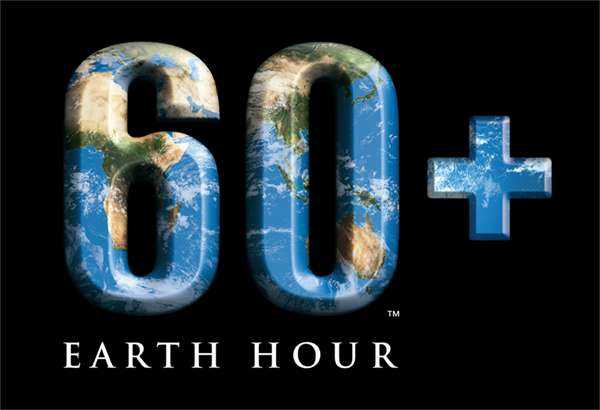• In addition, majority of Singaporeans find air-conditioning too cold in public areas
• Three out of four respondents have faced health issues due to strong air-conditioning
• This year, WWF encourages businesses and individuals to go Beyond the Hour & Light Switch by setting air-conditioning temperatures at 24°C or higher to save precious energy resources
Singapore, 2 March 2011 – According to a poll conducted by WWF Singapore for Earth Hour 2011, nearly half of Singapore residents are not happy with the fact that it can be quite cold indoors, despite the Island’s tropical climate and proximity to the equator. In addition, many have faced health issues, such as flu, cough and dry skin, as a result of air-conditioning being too strong. This is according to a poll of over 450 people in Singapore conducted in the lead up to Earth Hour 2011*. The aim of the poll was to determine how comfortable people currently are with air-conditioning temperatures in the country, in a bid to encourage individuals and organisations to set their air-conditioning temperatures at 24°C or higher.
Some 52 per cent of respondents felt that cinemas were too cold; offices and schools followed closely with 40 per cent indicating the same. Almost half of them also compared the temperature in their office/school to “Autumn in Seoul” (ranges from 5°C to 15°C), while one in four likened it to “Winter in Siberia” (ranges from -23°C to -45°C).
In order to keep themselves warm in cold offices or schools, respondents primarily wrap themselves in a shawl or wear a winter jacket (69 per cent), while another 25 per cent of respondents said they would either go out for a walk in the sun, go to the washroom, or take a coffee break.
Earth Hour Evolves Beyond the Hour
In Singapore, for 2011, WWF is focusing on the message “24 oC or higher”, when it comes to air-conditioning settings.
“Despite the heat and humidity in Singapore, our poll confirms that people are finding indoor temperatures too cold for comfort as a result of strong air-conditioning,” said Amy Ho, Managing Director, WWF Singapore. “This can easily be avoided and we encourage both organisations and individuals to set their air-conditioner temperatures at 24oC or higher. Not only will this make for more pleasant temperatures indoors, it will also save significant amounts of energy across the country, contributing towards the fight against climate change.”
The Singapore government has been driving efficient use of energy as a key strategy to mitigating emissions in the country. To encourage improved energy efficiency in Singapore, the Energy Efficiency Programme Office (E2PO), a multi-agency committee, was set up in 2007.
Prof. S. Jayakumar, Chairman of the Inter-Ministerial Committee on Climate Change, said: “The Earth Hour initiative by the WWF has played an important role in raising international awareness on the need to take action on climate change. It is important to sustain the interest of the general public on climate change issues and to encourage the public to take action throughout the year. I am therefore glad to note that Earth Hour 2011 will be encouraging organisations and individuals to go ‘beyond the hour’ and commit to reducing their energy usage throughout the year, as well as using energy more efficiently. Improving energy efficiency is an effective means of mitigating emissions as it will result in overall cost savings to both businesses and consumers.”
Turning up the Heat on Organisational Change
Organizations are encouraged to set their air-conditioning temperatures at 24°C to not just save on electricity bills, but also keep in mind the health of the people working and visiting their buildings. The Earth Hour poll revealed that half of the respondents believe strong air-conditioning is detrimental to their health. The issues ranged from nasal problems (cold, flu, sinus), dry eyes, to arthritis, stiff muscles, dry skin and/or hair.
Dr Jason Hwang, Consultant ENT surgeon at the Care Sinus Snoring ENT Centre in the Gleneagles Medical Centre said, “Studies have shown that the cold, dry air leads to nasal irritation, increased nasal congestion, sneezing, sinus infections and persistent cough. In addition, the body faces stress when one goes from a hot environment outdoors into a cold, air-conditioned environment, as some people do not cope well with such drastic changes in temperature. Setting the air-conditioning at a pleasant and more natural temperature of 24oC or higher will go a long way in reducing the incidence of health issues caused by air-conditioning.”
Many organizations in Singapore are already taking steps to turn up air-conditioning temperatures. One example is Orchard Road Business Association, which has rallied several of its major stakeholders to lead the change.
“On Orchard Road, there are more than fifty malls, hotels and retailers coming together to pledge and commit to Earth Hour’s cause. This year, we are even going beyond the hour and many have pledged to set their air-conditioning temperatures at 24°C. It is not just our privilege, but also our responsibility, to make a commitment towards combating climate change,” said Steven Goh, Executive Director of Orchard Road Business Association.
WWF Makes it Easy and Fun for Individuals to Make a Difference
To encourage people to go ‘beyond the hour’ and take steps everyday that will reduce their impact on the planet, WWF Singapore is launching the ‘60+’ iPhone application. With this app, anyone will be able to ‘check-in’ their planet-saving acts to earn badges and achievements, enabling them to see how everything they do adds up when it comes to helping the planet as well as share their achievements with their friends through Facebook.
*Poll was conducted in Singapore using online survey tool SurveyMonkey from 6 – 18 January 2011. A total of 462 respondents participated in the poll.














